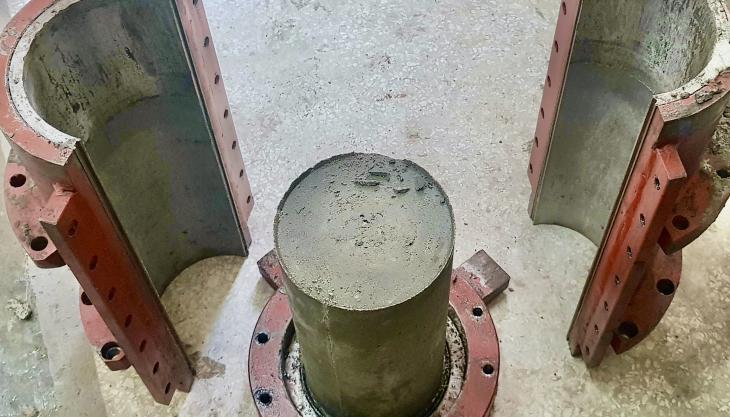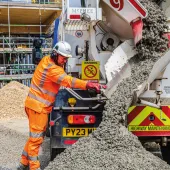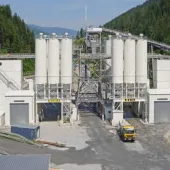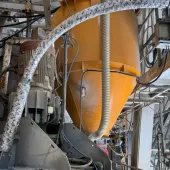Technological boost for sustainable concrete

New compression casting technology utilizes waste tyre rubber to make stronger concrete
RESEARCHERS at RMIT University in Melbourne, Australia, have developed a new technology to manufacture concrete made from recycled materials that is said to be stronger and more durable than the traditional product.
Concrete products made from recycled aggregates offer significant environmental benefits, from reducing landfill and CO2 emissions, to saving natural resources and boosting the circular economy.
However, despite ongoing improvements, matching the strength and durability of traditional concrete has hindered the practical application of these sustainable alternatives.
Now researchers from RMIT have developed a new method for casting prefabricated concrete products made with rubber tyres and construction and demolition waste that are claimed to be up to 35% stronger than traditional concrete products.
Professor Yufei Wu from the School of Engineering led the development of the Rubberized Concrete Processing Technology (RCP-Tech) and said it offered an efficient and inexpensive solution.
‘This technology can be used to significantly improve the strength, hardness and durability of any type of concrete material, such as rubber concrete, recycled aggregate concrete, and even ordinary concrete,’ he remarked.
The method involves combining a mix of coarse and fine aggregates with rubber tyre waste, cement and water, which is then compressed to its minimum volume using pressure in a customized mould.
‘By enhancing the properties of the recycled waste without the use of any additional materials, we have developed a feasible and practical solution that addresses the performance issues affiliated with waste recycling in concrete,’ said Mr Wu.
PhD researcher and RCP-Tech co-creator, Syed Kazmi, said the team was now looking to partner with the precast concrete industry to manufacture and test prototypes of products such as blocks, roadside barriers, beams and slabs.
‘The technology can be easily applied in the precast concrete industry and requires very little change to existing manufacturing processes, with the addition of just one extra step in the final stage of production.’









